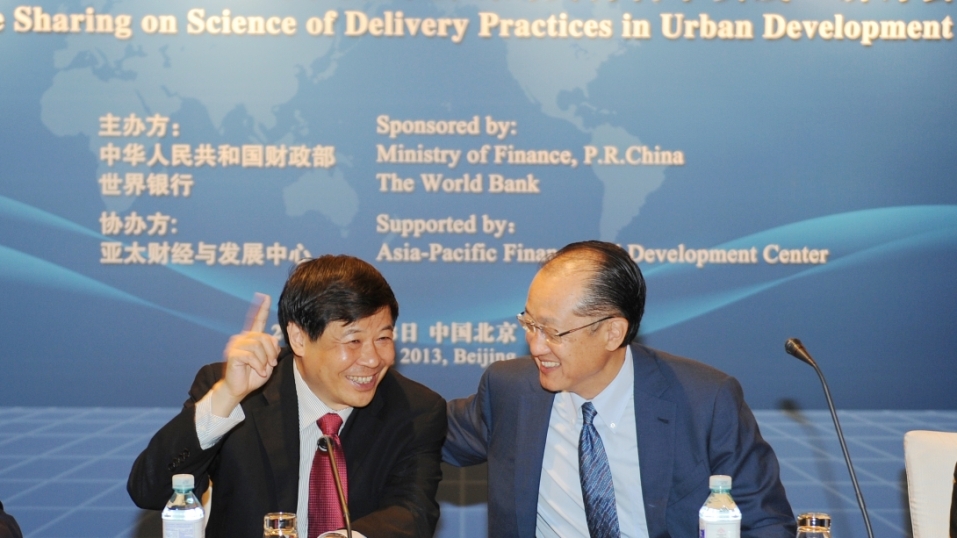China and the World Bank will continue to work together to spread knowledge from China’s successes in reducing poverty both within China as well as to other countries. This was the consensus on the "Experience Sharing Workshop on the Science of Delivery in Urban Development”, convened by the Chinese Ministry of Finance and the World Bank in late September.
Science of Delivery
The workshop is part of the World Bank-China Knowledge Hub aiming to make China’s lessons available to the world and further the common mission to end extreme poverty and build shared prosperity.
While many countries understand broad policy directions, they may not be getting the results they want because of poor “delivery”. Recognizing this challenge, last year, the World Bank put forward “science of delivery” idea and is piloting knowledge hubs with Governments of China, South Africa, Brazil and Russia. Main objective of these pilots is to collect and distribute evidence-based knowledge that countries have used to get delivery right and solve complex development problems.
Over 70 development practitioners from China, Korea, Singapore, Laos and Vietnam attended the workshop, opened by the World Bank Group President Jim Yong Kim and China’s Vice Finance Minister Zhu Guangyao.
The concept of “science of delivery” is highly consistent with the belief of Chinese leaders in “combining theories with practices” and “seeking truth from facts”, said Zhu Guangyao.
“Therefore, we support the World Bank’s pursuit of science of delivery and are willing to share China’s experience in development and contribute to expanding development knowledge of the world,” he said.
After these remarks, Li Shantong, Research Fellow, Development Research Center (DRC) of the State Council of China, delivered a keynote speech on China’s economic development since 1970s and the 30-year partnership between the World Bank and China. “The World Bank’s in-the-field practices in different countries over the past six decades can be a vital source for science of delivery,” she said.
President Kim commented that “our intention has been to analyze and share China's development knowledge with the rest of the world and make sure that the knowledge gained in the course of our partnership is captured and passed on to other development practitioners."

